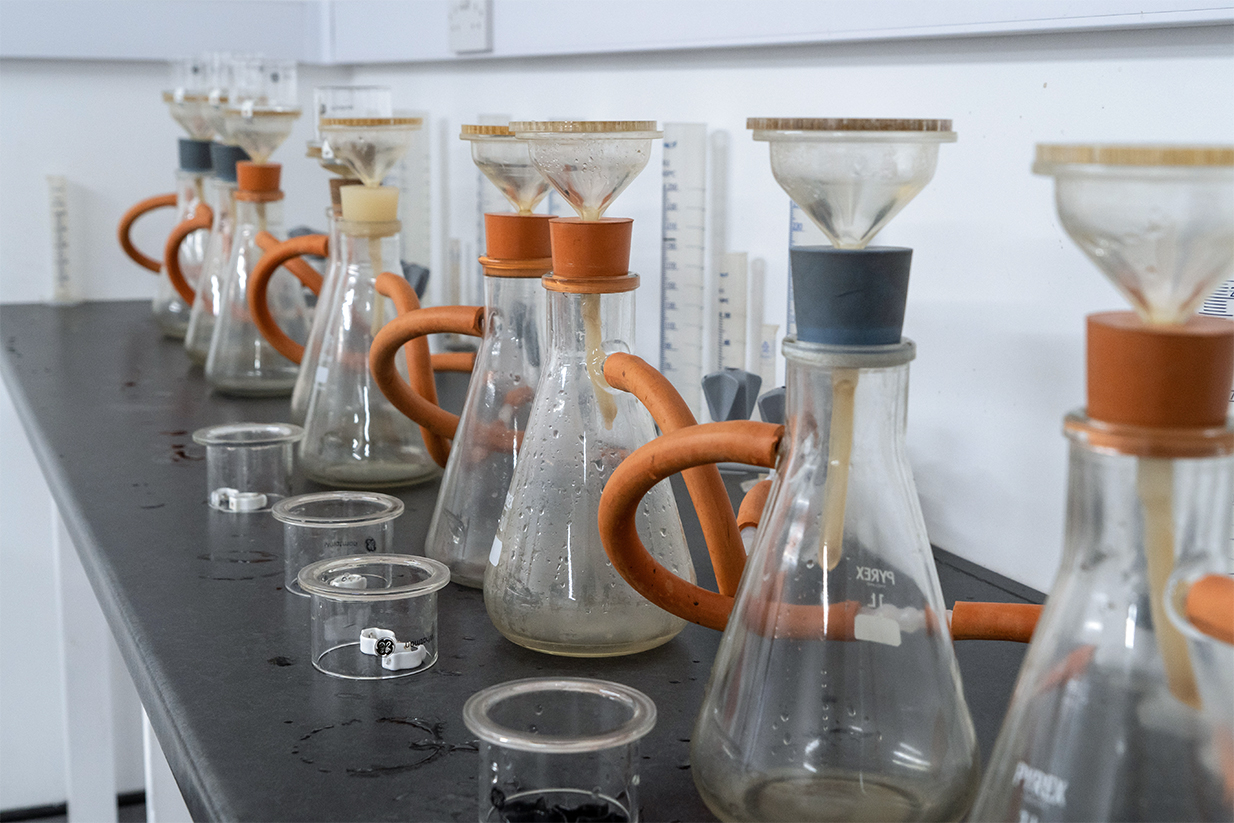What are persistent organic pollutants?
Persistent Organic Pollutants (POPs) are referenced in several legislative documents such as the Water Framework Directive (WFD), the Groundwater Directive, the Industrial Emissions Directive and the Waste Directive (WM3).
There are currently 48 compounds on the Priority Substance (PS) list, although this includes three metals (mercury, cadmium and lead), and a Watch List exists whereby additional compounds may be added, once sufficient data is available.
Analysis of persistent organic pollutants
We provide analysis of POPs.
The toxic concentration of these organic compounds is often very low, and therefore detection limits need to correspondingly lower. The instrumentation now implemented and validated at our lab utilises a combination of GCMS and LCMS.
- GCMS Target Based Screening – full scan mode using Deconvolution Reporting Software (DRS) to identify over 1000 compounds, including all compounds in the WFD.
- LCMS triple quadrupole – validated for acid herbicides down to ppt levels.
- GCMS triple quadrupole – validated for key pesticides, including chlorinated and phosphorylated pesticides, plus triazine, again down to ppt levels


